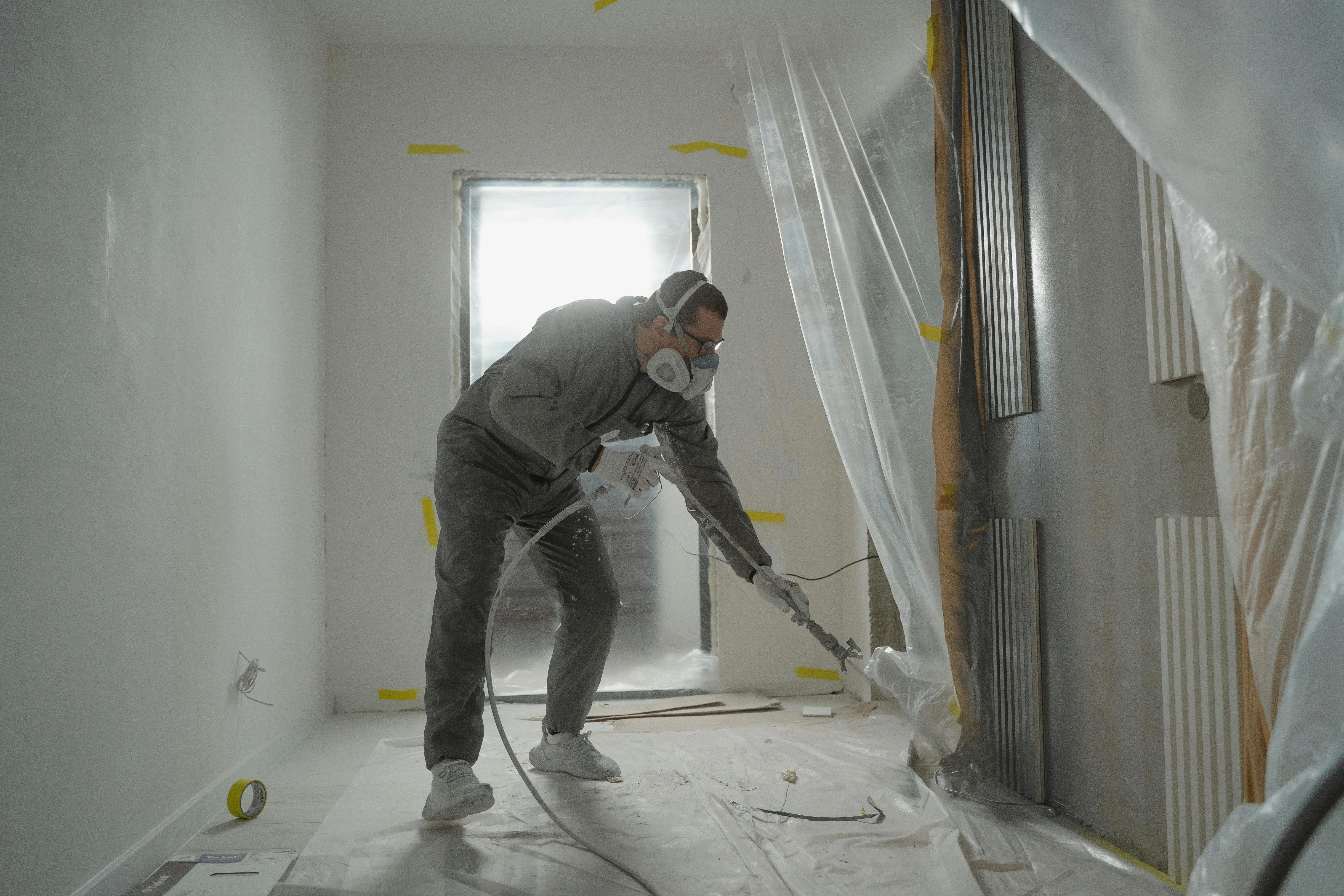Starting your own business is a dream for many, but the path to entrepreneurship can be filled with uncertainty. That’s where franchising comes into play. By buying into a Home Improvement Franchise, you’re essentially stepping into a proven business model with built-in support. However, there’s a lot to consider before diving in, especially when it comes to understanding the roofing franchise investment cost, evaluating the right sector, and knowing what you’re signing up for.
In this blog post, we’ll walk through everything you need to think about before running a franchise business—from financial commitments to the day-to-day responsibilities.
We’ll also take a close look at trending sectors, such as irrigation franchise opportunities, which are gaining momentum due to growing environmental awareness and increasing infrastructure demand. In this blog, we break down what you need to consider before signing that agreement.
Know Your Why: Motivation and Personal Goals
Before evaluating investment numbers or business models, take a step back and reflect on why you want to run a franchise.
- Are you seeking financial freedom or more control over your time?
- Do you want to be hands-on or manage from a distance?
- Are you looking to build a long-term asset or flip the business in a few years?
Your personal goals should align with the type of franchise you choose.
Some franchises require daily, hands-on involvement, while others are more passive. Knowing your motivation will guide all your other decisions.
Understand the Costs: More Than Just the Franchise Fee
It’s easy to look at the franchise fee and think that’s the total cost, but that’s only the beginning. Whether you’re looking at a fast-food chain, a landscaping business, or something niche like an irrigation business, make sure to tally every possible expense. Here’s what to consider:
- Franchise fee: The upfront cost to use the brand name and system.
- Equipment and supplies: Everything from tools to tech platforms.
- Initial inventory: Depending on the business, this can be a major cost.
- Training and onboarding: Often covered in the franchise fee, but not always.
- Lease or real estate: Retail franchises will need a physical location, while mobile services may require vehicles.
- Marketing and local advertising: Some franchisors offer co-op marketing support, but local is often your responsibility.
- Working capital: You’ll need funds to cover salaries, utilities, and other expenses before you break even.
Always ask for a full breakdown of the roofing franchise costs or any other model you’re considering, and work with a financial advisor to evaluate whether the investment is for you.
Evaluate the Industry: Is It Sustainable?
Franchising success isn’t just about the brand name—it’s about being in the right industry at the right time. That’s why many new entrepreneurs are exploring irrigation businesses as water conservation and sustainability become hot-button issues in residential and commercial spaces.
Some industries are recession-resistant (like home improvement), while others are more sensitive to economic fluctuations (like luxury services). Ask yourself:
- Is this industry growing or declining?
- Does it offer recurring revenue or one-time transactions?
- Are there barriers to entry that protect you from heavy competition?
- What are the future trends, regulations, and customer behaviors impacting this industry?
Research is your best friend. Look at market reports, talk to other franchisees, and attend franchise expos to get a broad view of your chosen sector.
Looking to go further? Here are more smart reads to keep the momentum going.
Due Diligence: Read the FDD Carefully
Every franchisor is legally required to provide a Franchise Disclosure Document (FDD). This document can be overwhelming, but it’s essential.
It contains crucial details about costs, franchisee obligations, restrictions, and past or pending litigation involving the brand. Key items to review:
- Item 7: Estimated Initial Investment: This outlines the total initial investment, including the roofing franchise investment cost or whatever business model you’re reviewing.
- Item 19: Financial Performance Representations: Not all FDDs include earnings claims, but if they do, this is where you’ll find them.
- Litigation history: Past lawsuits or legal disputes can be a red flag.
- Renewal and termination terms: Know the fine print before signing anything.
Always have an attorney review the FDD before you proceed.
Support and Training: What Does the Franchisor Offer?
One of the biggest perks of buying a franchise is the support you get. But not all franchisors offer the same level of help. Find out:
- Training programs: Is it one-time or ongoing?
- Marketing materials and local campaign support: Will they help you attract customers?
- Operations manuals: These should be detailed enough to guide day-to-day management.
- Technology and CRM tools: Automation can save you time and money.
Ask current franchisees what kind of support they receive and how responsive the franchisor is. This is especially important for specialized businesses like irrigation businesses, where technical knowledge may be required.
Location, Territory, and Market Saturation
Even the best franchise won’t thrive in the wrong location. Most franchises offer exclusive or semi-exclusive territories, so find out exactly what that means.
- Is the market already saturated with competitors?
- Does the franchisor promise territorial protection?
- What kind of demographic does the business appeal to, and does your area fit that profile?
This step is crucial for businesses like roofing and irrigation Home Improvement Franchise, which often operate within defined service areas. You want to ensure there’s enough demand within your territory to generate sustainable revenue.
Talk to Current Franchisees
There’s no better way to get the real story than by speaking directly to people already running the business. Ask open-ended questions like:
- What surprised you most after opening your franchise?
- How long did it take you to become profitable?
- What do you wish you had known before signing the agreement?
- How is the ongoing support from the franchisor?
- Would you do it again?
Franchisees are listed in the FDD, so you’ll have access to their contact details. Most are happy to chat, especially if you’re respectful of their time.
Compare Franchise Models
Before you commit, explore multiple Home Improvement Franchise types. You might start looking into a fast-food chain, but discover that a roofing franchise is more accessible and less operationally intense.
Or maybe you find that irrigation franchise opportunities offer more growth potential with lower overhead. Compare across these dimensions:
- Startup costs and ROI.
- Day-to-day involvement required.
- Support and training quality.
- Scalability and multi-unit potential.
A good fit depends on your lifestyle, financial goals, and personal interests.
Plan Your Exit Strategy
It may seem strange to think about selling a business you haven’t even started, but it’s a critical part of your long-term strategy. Know the terms around resale, including:
- Whether the franchisor must approve the buyer.
- Transfer fees.
- Profit-sharing or royalties on the sale.
If your goal is to build and sell, choose a Home Improvement Franchise model with a strong resale history.
Final Thoughts: Is a Franchise the Right Fit?
Franchising offers a lower-risk entry point into business ownership, but it’s not a guarantee of success. Careful evaluation of the business model, industry trends, and your own goals is essential. Whether you’re comparing a fast-casual food outlet or looking into irrigation franchise opportunities, the research you do up front will pay off in the long run.
Make sure you understand the full cost of a roofing business, the level of support provided, and the demand within your local market before signing any agreement.
With the right information and a strategic approach, franchising can be a smart and rewarding path to business ownership.
Thinking of taking the plunge into franchising? Make sure to assess the roofing franchise investment cost, evaluate all your options, and align every decision with your long-term goals.
Don’t miss our newest articles—they’re all waiting at 2A Magazine.







